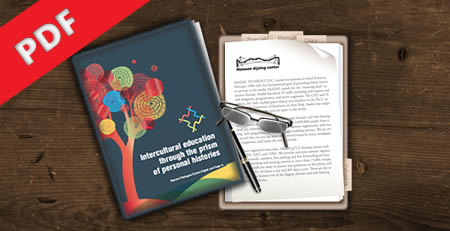Cultural and spiritual heritage of the region
Eastern region of Croatia is very multicultural area. In Vukovar, before the war, there were 27 different nationalities; in Baranja region, beside the Croatian majority, the most common are Hungarian, Serbian, Roma and German minorities.
After the war and peaceful reintegration, through the implementation of the Law of the National Minorities Rights, most minority groups opted for some form of minority education – from A model in which the whole teaching is carried out in the minority language, to C model that, in addition to regular classes in Croatian, provides additional hours of learning the language, history and culture of the minority.
In this way, minority education is to ensure children exploring their own culture and building their own identity, but also it becomes an obstacle to their integration into society, particularly the implementation of the Model A – where children from the minority communities are divided into separate classes.
On the other hand, those who are majority learned little or nothing about the national minorities and their cultural specificities. Despite the fact that they are living together, in fact, they know little about each other, and what they know is very often distorted and charged with negative connotations.
Getting to know other cultures and their customs, open communication, building relationships with others, and raising awareness that the building of the community which we live in is only possible with the inclusion of all the participants, is necessary not only to overcome the consequences of war and encourage the process of establishing trust between members of different ethnic groups, but also as a preparation for a future life in the united, multicultural Europe.
Subject Cultural and Spiritual Heritage of the Region (CSHR) allows children who live in multicultural and multiethnic communities to learn more about their own country, the culture and customs of the people who live in this area, with the aim of better understanding and respect for others and different, which is of essential importance for building relationships and intercultural society.
After a positive evaluation by the Education and Teacher Training Agency (May 2007) and after a recommendation for the introduction into regular schools, subject CSHR has been offered to schools in the region. The three schools – Primary School Franjo Tudjman Beli Manastir, Primary School Markušica Primary School Blago Zadro Vukovar implemented a three-year pilot project, supported by the Ministry of Science, Education and Sports and the County of Osječko- Baranjska.
The project included 60 students in higher grades of the three elementary schools and seven of their teachers. Program activities, conducted in the three years, were within the set of thematic units, common to all of the three schools (religious symbols and folk customs, crafts and specific domestic products, architecture development, significant people of the region, native languages and scripts, migration, regional history and mythology , regional arts) – through project and field work, in the form of creative workshops, visits to museums, institutions, and the networking of schools – joint meetings of students and teachers.
Monitoring and Evaluation confirmed the importance of such approach to learning about multicultural environment, because apart from the fact that the children involved in the project learned of their regional heritage, implementation of the CSHR program led to a noticeable change in children’s attitudes and behaviours, more tolerance, they were less willing to discriminate against others, whereas teachers through this work and evaluation got a certificate and support for their further work on connecting the children of different ethnicities.
Knut Vollebaek, OSCE High Commissioner on National Minorities, issued a letter of support for CSHR programme, in which he encourages and recommends the implementation of the programme in other multicultural areas in the region and beyond, in Europe, as a possible model for teaching cultural specificities and improving relations within multicultural communities.
From the school year 2010/11, the project includes nine schools in the eastern Croatian region (Primary School Blago Zadro Vukovar, Primary School Sinisa Glavasevic Vukovar, Primary School Nikola Andric Vukovar, Primary School Markušica, Primary School Franjo Tudjman Beli Manastir, Primary School Popovac, Primary School Zmajevac, Primary School Negoslavci and Primary School Mirkovci) that offer CSHR as an extracurricular activity.
The project implementation is still monitored by the Education and Teacher Training Agency of the Republic of Croatia.
So far the implementation has shown that CSHR is a bridge between children of different nationalities, and we expect the programme Cultural and Spiritual Heritage of Region to take hold in these schools and become their identity in the community where they live and work, and that the program would expand in other multicultural areas in Croatia and beyond.
Project is financed by Delegation of the European Union to the Republic of Croatia.























